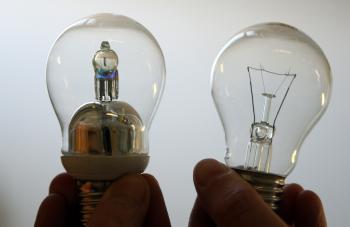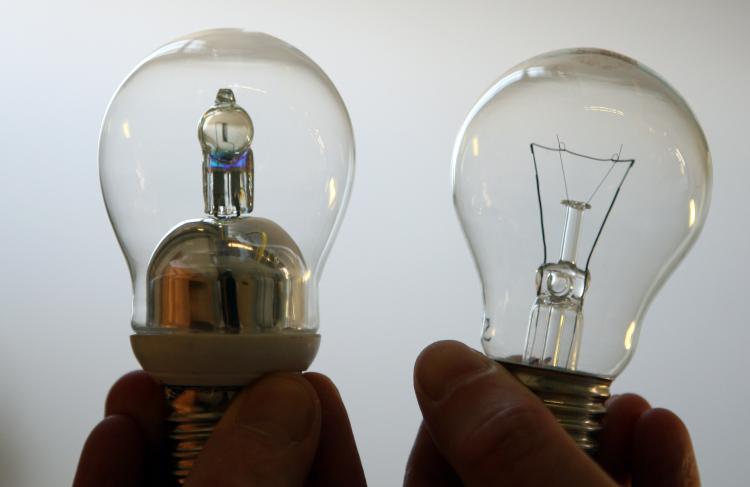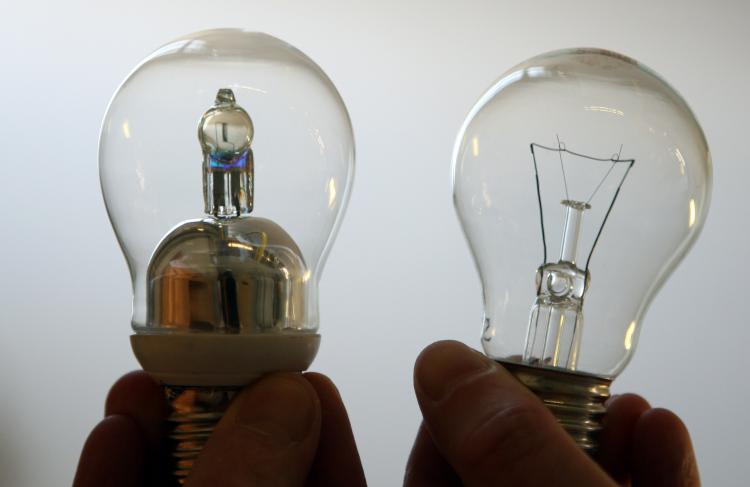Light Bulbs
If you haven’t already, in areas where general lighting is required, switch those old light globes to compact fluorescents lamps (CFLs).Benefit:
They use at least four times less energy than an incandescent and last up to eight times longer.
Turning a CFL on for four hours a day will save over $10 electricity and 68kg of greenhouse gas emissions in a year.
Energy Star Appliances
Choose energy efficient appliances. These running costs can easily exceed the original purchase price. An energy rating label displays a number of stars. The more stars, the more energy efficient the appliance is.Benefit:
Using efficient appliances can save you hundreds of dollars each year in running costs.
Running a six star 360L fridge will produce almost half a tonne less greenhouse gas each year than a three star model.
Hot Water
Twenty-five per cent of energy used in the home is used to heat water. An electric hot water heater servicing 3-4 people will cost around $500 in energy and emit 3.3 tonnes of greenhouse gases.Benefit:
A solar hot water system will save nearly $450 of this and 2.7 tonnes of greenhouse gases.
An instantaneous gas system will save approximately $370 and 2.4 tonnes.
Showerhead
An inefficient showerhead can use more than 20L of water every minute while an efficient WELS 4-star rated one will use a maximum of 7L every minute.Benefit:
Water efficient showerheads can save around $60-$90 annually on household water bills.
The reduction in hot water means less energy is needed for water heating and can save up to $160 on energy bills, depending on the sort of water heating system you use.
Compost
Each Australian averages one tonne of rubbish each year. Forty per cent of this or 400kg of waste can be diverted from landfill with a compost bin or worm farm.Benefit:
Both produce nutrient rich soil perfect to grow plants like fruits and vegetables in. Composting worms can eat their own body weight in two days and if given enough room will double their population every three months.
Tips provided by Daniel Granger,
Sustainability Consultant at Neco Holdings, Sydney.






